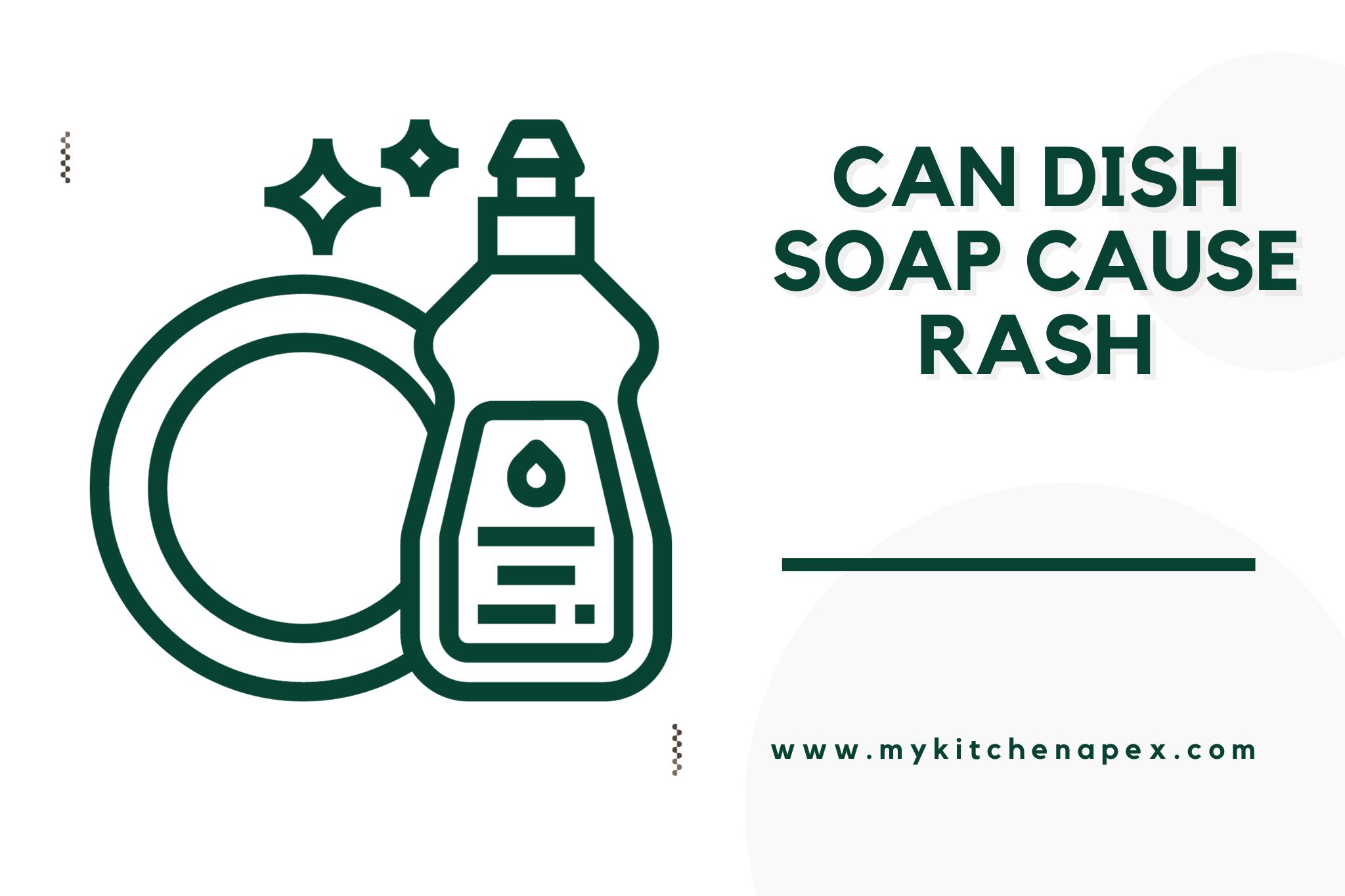Are you experiencing an itchy, red rash that just won’t go away? If so, you may be wondering if your dish soap could be the culprit. While dish soap is designed to cut through grease and grime, some ingredients can irritate sensitive skin. In this blog post, we’ll explore whether dish soap can cause a rash and provide tips on how to soothe irritated skin. So grab a cup of tea and let’s dive into this topic together!
When it comes to household products, we often overlook the potential impact they can have on our skin. But with more people becoming conscious of their health and well-being, it’s essential to understand the potential risks associated with everyday items like dish soap. In this article, we’ll examine common irritants found in dish soaps and discuss how they can affect your skin. By the end of this post, you’ll have a better understanding of whether your trusty bottle of dish soap could be causing that pesky rash.
Table of Content
Highlights:
- Dish soap can cause a rash due to harsh chemicals and irritants.
- Choose gentle dish soaps for sensitive skin or opt for natural alternatives.
- If you experience a rash, stop using the soap, rinse thoroughly, and seek medical advice if needed.
can dish soap cause rash
Yes, dish soap can cause a rash. Some dish soaps contain harsh chemicals and irritants that can strip away the skin’s natural oils and disrupt its protective barrier. This can lead to dryness, redness, itching, and even a rash. If you have sensitive skin or are prone to allergies, it is important to choose a gentle dish soap specifically formulated for sensitive skin or opt for natural alternatives. Additionally, using gloves while washing dishes can provide an extra layer of protection against potential irritants in the soap.
If you experience a rash after using dish soap, it is recommended to stop using the product immediately and rinse your hands thoroughly with water. Applying a soothing moisturizer or hydrocortisone cream may help alleviate any discomfort or inflammation. If the rash persists or worsens, it is advisable to consult a dermatologist for further evaluation and treatment options.
In conclusion, while not all dish soaps will cause a rash, some may contain ingredients that can be harsh on the skin. Taking precautions such as choosing gentle formulations and wearing gloves can help minimize the risk of developing a rash from dish soap use.
You May Also Like: can dish soap cause dry skin
How do you know if you’re allergic to dish soap?
If you suspect that you may be allergic to dish soap, there are a few signs and symptoms to look out for. Firstly, pay attention to any skin reactions that occur after using the soap. This can include redness, itching, or a rash on your hands or other areas of contact. Additionally, if you experience respiratory symptoms such as coughing, sneezing, or difficulty breathing when using dish soap, it could be an indication of an allergy. It’s important to note that these symptoms may not appear immediately but can develop over time with repeated exposure.
To confirm whether you have an allergy to dish soap, it is recommended to consult with a healthcare professional or allergist who can conduct tests such as patch testing or skin prick tests. These tests involve applying small amounts of the suspected allergen onto your skin and monitoring for any reactions. By identifying the specific ingredient in the dish soap that triggers your allergies, you can then avoid products containing that ingredient in the future.
In conclusion, if you suspect that you might be allergic to dish soap due to experiencing skin reactions or respiratory symptoms after use, it is best to seek medical advice for proper diagnosis and treatment options.
Dishwashing liquid allergy symptoms
Are you experiencing symptoms of an allergy to dishwashing liquid? If so, you’re not alone. Allergic reactions to dish soap can manifest in various ways, including skin irritation, redness, itching, and even blisters. These symptoms typically occur when your immune system reacts to certain ingredients found in the detergent.
One common culprit is fragrance, which is added to many dishwashing liquids for a pleasant scent. However, fragrances can be irritating to sensitive individuals and trigger allergic reactions. Other potential allergens include preservatives like methylisothiazolinone (MI) and surfactants such as sodium lauryl sulfate (SLS).
If you suspect that your symptoms are caused by dishwashing liquid allergies, it’s important to switch to a hypoallergenic or fragrance-free alternative. Additionally, wearing gloves while washing dishes can provide a barrier between your skin and the detergent. If your symptoms persist or worsen despite these measures, consult with a healthcare professional for further evaluation and guidance.
Remember that everyone’s sensitivity levels differ, so what may cause an allergic reaction in one person might not affect another. By being aware of the potential allergens in dishwashing liquids and taking appropriate precautions, you can minimize the risk of developing unpleasant symptoms and keep your hands feeling clean and healthy.
Also Read: does dish soap kill plants
How to treat a rash caused by dish soap
Are you suffering from a rash caused by dish soap? Don’t worry, we’ve got you covered. Our expert team has compiled the best tips and tricks to help you treat this irritating condition quickly and effectively.
Firstly, it’s important to stop using the dish soap that caused the rash. Switch to a mild, fragrance-free alternative that is gentle on your skin. Next, gently cleanse the affected area with lukewarm water and a mild soap specifically designed for sensitive skin. Avoid scrubbing or rubbing vigorously as this can further irritate the rash.
To soothe the itching and inflammation, apply a cold compress or take a cool bath. You can also try over-the-counter hydrocortisone cream or calamine lotion to relieve discomfort. Remember to avoid scratching as it can lead to infection.
If your symptoms persist or worsen after a few days of self-treatment, it’s crucial to seek medical advice from a dermatologist who can provide personalized recommendations based on your specific situation.
Don’t let dish soap rashes ruin your day! Follow these simple steps for relief and get back to enjoying life without discomfort.
Also Read: does dish soap kill salmonella
Final Thoughts
Dish soap can cause a rash due to harsh chemicals and irritants. If you experience a rash, stop using the product and rinse thoroughly. Applying moisturizer or hydrocortisone cream may help. Choose gentle formulations or wear gloves while washing dishes to minimize risk. Look out for symptoms like redness, itching, or respiratory issues after use. Consult a healthcare professional for proper diagnosis and treatment options if needed. Allergic reactions can be triggered by fragrances, preservatives, or surfactants in dishwashing liquids. Switching to hypoallergenic alternatives and wearing gloves can help prevent symptoms. Treat rashes by switching to mild soap, applying cold compresses or creams, and seeking medical advice if necessary.

